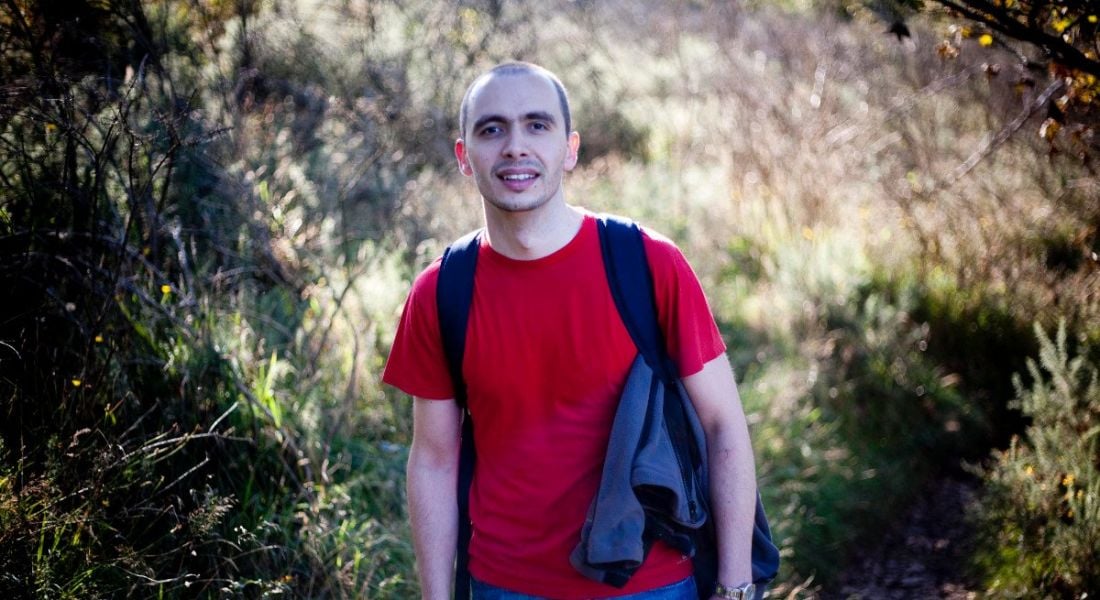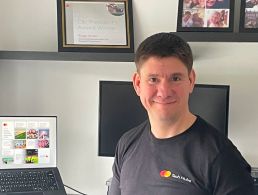Blockchain has become a massive area of the tech industry, but how do you get a job in it? We spoke to Mastercard’s Eduardo Andrade to find out.
One of the best parts of working in the technology sector is how it is constantly evolving. It means that those within the sector can upskill, move around and take on entirely new roles with ease.
There’s a lot to learn but at the same time many of the skills are transferable, meaning those seeking a new challenge can do so with little or no previous experience in that area. It’s all about how they can apply their current skills to learn a new role.
One example of this is Eduardo Andrade. He currently works in Mastercard Labs in Dublin as part of a team that is tasked with building and augmenting a blockchain completely developed at Mastercard.
He works on a modern Java development platform and some of his main areas of focus are around cryptography and software security. Interestingly, Andrade said he had no background in blockchain before taking on this role. “I originally joined Mastercard five years ago as a software engineer to develop and scale a global payments platform, which had its inception in Mastercard Lab,” he said.
“Blockchain was definitely a topic I wanted to know more about so I took a course that explained in greater detail how blockchains work and the properties they have, along with some of the use cases they can be utilised upon. I found it very interesting and it certainly made me more curious about the technology and its potential.”
Andrade’s interest in blockchain is what drove him to the role he now has, but how did he get it without previous experience in the area? His transferable skills from working as a software developer were key, as the model he and his team followed in that role was very similar to how a start-up operates. “It felt really good to be able to develop rapidly, as part of a team working in different time zones, always pushing new features out to our customers. I used these skills to apply for the blockchain role last year,” he said.
In fact, Andrade said most of his days working in blockchain are similar to a typical Java software engineer working on a greenfield project – work that doesn’t follow prior work.
“This includes reading specifications, designing and implementing features, writing various types of tests, collaborating with other team members, and discussing ideas and approaches,” he said. “Every day will bring you a new challenge for you to deal with and that is one of the reasons why this job is so appealing – you’re never bored!”
Want to work in blockchain?
While Andrade had no previous experience in his current position, what he did have were those transferable skills. So, what advice does he have to score a blockchain role?
“A good software development background with skills in object-oriented programming and experience in building secure and resilient, high-quality applications is a great way to lead into a blockchain career,” he said. “Understanding distributed systems, consensus algorithms and cryptography is helpful when working on blockchain – however, you don’t have to be an expert in any of these to become a blockchain developer!”
He also said that because the blockchain ecosystem is so diverse, he would advise reading up on the different types of blockchains such as public, private and permissioned as well as how the different products support decentralised applications and the role of smart contracts on them.
“Every blockchain role is unique, so try and understand as much as possible about the role and the company. Think about your experience and what can be applied to the solutions the team is looking to solve for,” he said.
“As an IT professional you always try to stay up to date with emerging technologies, especially ones that might have a big impact, and I believe blockchain can be one of those technologies.”




